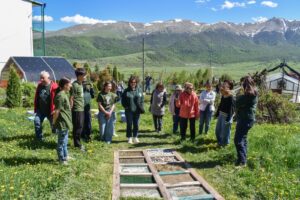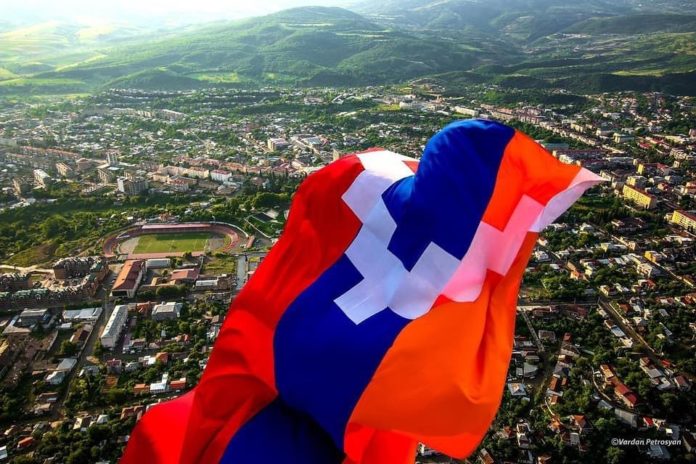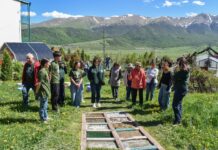STEPANAKERT — Robert Avetisyan, Permanent Representative of the Nagorno Karabakh Republic in the United States, is usually based in Washington, but he was in Stepanakert as the current attacks by Azerbaijan unfolded.
Speaking on September 30 from Stepanakert, Avetisyan said that naturally the normal pace of life in the capital of Karabakh (Artsakh) cannot be maintained now. Though things are calmer there than at the frontlines, the city can be reached by the Azerbaijani armed forces. There have been drone attacks and artillery shelling from time to time. Avetisyan said, “The good thing is that the civil defense system is working very well. We have notifications right away, which are very loud, so that everybody, no matter where you are, hears the sounds.”
The shelters have been improved compared to the period of bombardments of Stepanakert during the war in the early 1990s. Avetisyan said that people go in the shelters and stay there until the sirens go off. This is okay during the day, he said, but to run to shelters at night four or five times is a different story.
The attacks on the capital, he speculated, were dependent in part on the successes of the Artsakh army on the frontlines, and on weather, when it comes to Azerbaijan’s use of attack drones. Initially, perhaps they were an attempt to instigate panic and fear but that has not worked. Also, the city is now packed with foreign journalists from all over the world from the top media outlets, which might be giving Azerbaijanis second thoughts about attacking Stepanakert, though many of these journalists have already heard the sirens and seen the drone attacks.
The majority of the male population up to 55 years old are either on the frontlines or are waiting their turn in the reserves, Avetisyan related. While women are not mobilized in this way, there are female contract servicewomen, and volunteers, and unfortunately there have already been at least two female military victims.
In the villages or provinces, there is no centralized evacuation, but everything is up to the local populace. Avetisyan said that in places indiscriminately fired upon by the Azerbaijanis, some people try to remain if they feel secure, while others may escape from Azerbaijani attacks to elsewhere in Artsakh or Armenia. Avetisyan said, “Human security is number one for us. If people wish to relocate, they are free to do so, as there are no barriers to that. But we are proud that many decide to stay and support the troops as much as possible.”








